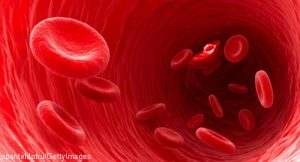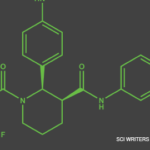 ACR Convergence 2021—The world of vasculitis has seen several significant changes over the past year, and these important advances were discussed by Peter Merkel, MD, MPH, chief, Division of Rheumatology, University of Pennsylvania, Philadelphia, during the ACR Convergence 2021 annual Review Course.
ACR Convergence 2021—The world of vasculitis has seen several significant changes over the past year, and these important advances were discussed by Peter Merkel, MD, MPH, chief, Division of Rheumatology, University of Pennsylvania, Philadelphia, during the ACR Convergence 2021 annual Review Course.
Dr. Merkel began by noting that the ACR and Vasculitis Foundation worked together to publish guidelines this year for several forms of systemic vasculitis. Among these guidelines was a document dedicated to anti-neutrophil cytoplasmic antibody (ANCA) associated vasculitis, which can come in the form of granulomatosis with polyangiitis (GPA), microscopic polyangiitis (MPA) or eosinophilic granulomatosis with polyangiitis (EGPA).
Treatments
Dr. Merkel noted that for non-severe ANCA-associated vasculitis (i.e., not organ- or life-threatening), methotrexate and rituximab both represent reasonable agents for induction of remission; maintenance medications can include methotrexate, azathioprine, rituximab or—as a third-line option—mycophenolate mofetil.
For severe disease, cyclophosphamide remains an option for induction of remission, but it is being used less and less in the U.S., given the efficacy demonstrated by rituximab and the significant toxicities that can occur with cyclophosphamide treatment.1
Avacopan may now help fulfill an unmet clinical need to reduce or avoid glucocorticoids while yielding better long-term outcomes for patients.
Remission Maintenance
Concerning maintenance of remission in ANCA-associated vasculitis, the MAINRITSAN-1 trial found that 500 mg of rituximab every six months is more effective than 2 mg/kg/day of azathioprine for remission maintenance.2
Dr. Merkel did point out several questions that remained after this trial was completed, including: What would the effects of a higher dose of rituximab have been? Because all patients in this study received cyclophosphamide for induction, what is the generalizability to patients who do not receive this agent for induction treatment? What would have been the results if azathioprine had not been tapered from the 2 mg/kg/day dose after one year?
Dr. Merkel also discussed the RITAZAREM trial, for which he is a co-primary investigator. This is a study of 190 patients with GPA or MPA with relapse treated with rituximab at a dose of 375 mg/m2 intravenous (IV) infusion weekly for four consecutive weeks. Patients who were then in remission at four months were randomized to either rituximab 1g IV every four months or azathioprine 2 mg/kg/day from months 4 to 24.
Dr. Merkel et al. found that rituximab was superior to azathioprine for preventing disease relapse, but he did point out in his talk that the rate of relapse accelerated in both arms once either agent (rituximab or azathioprine) was stopped at 24 months.3


